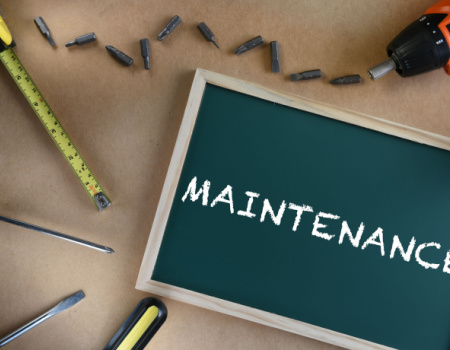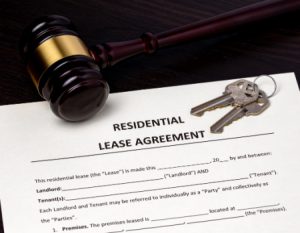If you’re a do-it-yourself kind of person, managing your own rental property can be a great way to save money. But it’s not for everyone. Before you take on the responsibility of being your own landlord, there are a few things you should consider. Here are some tips on DIY rental property management.
1. Establish clear expectations with your tenants from the beginning
Setting expectations from the start of the rental agreement is a critical part of managing your own property. Defining what is expected of both landlord and tenant in terms of payment, maintenance, inspection, and other regulations can help ensure a smoother tenancy for all parties involved. In addition to drawing up a lease or rental agreement, formalizing the expectations can involve providing clear informational documents about your rental unit – these can include things like rules on pets, noise levels, and how to handle repairs. While talking face-to-face with tenants may not be possible in all cases, digitally communicated expectations between landlord and tenant have become increasingly popular. Whatever method you choose, making sure clear expectations are established with your tenants from the beginning will benefit you in the long run as a property manager.
2. Have a system in place for collecting rent payments
When it comes to collecting rent payments, having a system in place is essential for being an efficient landlord. It’s important to set up a system that works best for both you and your tenants, such as scheduling payment due dates, providing multiple payment options like cash or credit, utilizing online payment systems, and setting up automated reminders when rent is due. Being organized with rent payments help both you and the tenant know what to expect throughout the tenancy agreement and will save both of you time and frustration down the line.
3. Keep up with regular maintenance and repairs around the property
Keeping up with regular maintenance and repairs around your property is an important part of protecting your investment. Prevention is far better than having to deal with expensive repair bills, so it pays to take the time to routinely check things yourself or have a professional out to inspect them annually. Make sure everything from appliances, foundation cracks, landscaping issues, plumbing blockages, HVAC systems and electrical wiring is up-to-date and in good condition. Taking proactive measures will pay off in the long run when it comes to managing your own property.
4. Be responsive to any tenant concerns or issues that arise
A good landlord must be responsive to any tenant concerns or issues. Keeping in communication with tenants, returning calls and emails promptly, and scheduling or completing necessary repairs in a timely manner can go a long way in building trust and cultivating healthy relationships between landlord and tenant. A further step landlords can take is developing a maintenance plan for their property. This should include routine inspections, preventive maintenance services, regular pest control treatments, and any other activities required to keep the property running smoothly. Responsiveness is key to property management—addressing any issues as they arise and conveying to tenants that their concerns are taken seriously.
5. Inspect the property regularly to ensure it is being well-kept
Property management is an important skill to have when taking ownership of your own property. It’s essential to inspect your property regularly for any signs of damage or maintenance issues in order to keep it in good condition and maintain its value. Doing this helps protect your investment by avoiding the expense of major repairs that can be caused when small problems are overlooked. It’s also a sign of respect to surrounding neighbors who will appreciate your efforts to take good care of the property. Inspecting your property on a regular basis is one of many steps you should take when managing your own property.
6. Stay organized and keep good records of all communications with tenants
When it comes to managing your own property, staying organized and keeping good records of all communications with tenants is absolutely essential. This can be made much simpler by using the right tools. Having a filing system in place for tenant details such as applications and contact information, along with essential documents like leases and other agreements, is one way to remain organized. Additionally, there are now digital solutions to ensure that all communication with tenants is tracked effectively and securely – emails, SMS and phone calls can be monitored and recorded in an online tool to easily access any information quickly. Doing this ensures that you have great records of everything related to tenant management for whenever it’s needed down the line.
Conclusion:
To manage your own property effectively, it requires establishing clear expectations with tenants, having a system in place for collecting rent payments, keeping up with regular maintenance and repairs around the property, responding to any concerns or issues that arise, inspecting the property regularly, and staying organized by keeping good records. With this guidelines and Workflow’s help in providing an effective plan for managing one’s own property, you can begin to gain more control over this important aspect of your life and business. Remember to stay within local regulations as you work to develop a solid plan of action for yourself and any other parties involved. Moreover, be sure to understand what type of tenant will best fit your rental needs and use their feedback when making decisions about the best way to handle the management process. With these tips in mind, you can have greater success in managing your own property.




